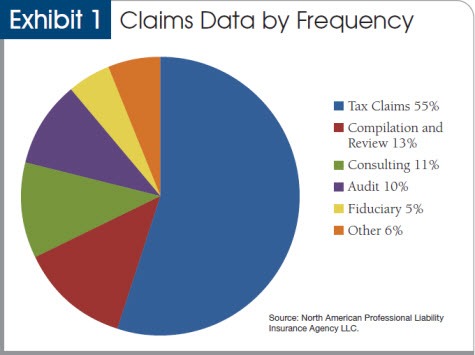
by John McCarthy Consulting Ltd. | Mar 25, 2024 | News
A recent UK High Court case reported in January 2024 makes interesting reading. The auditors were cleared of any liability in a claim for negligence brought by their former client.
A claim for negligence was made by a Travel firm called Ickenham Travel Group (Ickenham) against its auditors, Tiffin Green (TG) Ickenham alleged that as a result of the auditors’ negligence Ickenham achieved £6m less than it could have achieved otherwise, when it sold a business division called BTD.
The claim stated that TG were:
- Negligent and
- In breach of contract;
- Failed to identify various irregularities and an understatement of £4.5m in the financial statements (caused by overstated creditors);
- For each of the four years ended 30 September 2014, 2015, 2016 and 2017 in which they audited Ickenham.
Ickenham stated that if the error had been identified, the company could have taken action to address the amount and avoid any recurrence of the issue.
Ickenham is a travel agency and that had two divisions until July 2019:
- a business travel division called ‘Business Travel Direct (BTD)’ and
- a consumer travel agency, called ‘LetsGo2’.
In early 2019, Ickenham discovered serious irregularities in its accounting systems and records, which originated before the FY14. As a result the trade creditors of LetsGo2 were overstated by £4.5m (the ‘understatement’). In 2019, the combined turnover of LetsGo2 and BTD was £95m, so the understatement was material, even though the accounting problems only related to LetsGo2.
The £4.5m understatement is believed to have built up over a long number of years and started before TG was appointed. It was accepted by Ickenham at the end of the trial that the understatement was at least £2.5m in September 2014 when TG were first appointed. TG first identified the understatement before completion of the audit of the FY 2018 , when new auditors were appointed.
In response to Ickenham’s claim, TG said that BTD was sold for its true value and among other matters was not the ‘type of loss for which TG was liable’.
The Court agreed with the expert witnesses for both sides who gave evidence at the trial and concluded that ‘a reasonably competent auditor probably would have identified and alerted Ickenham to the irregularities and understatement’. TG had failed to do so and had accordingly breached their duties as auditors in both contract and tort by failing to act as a reasonably competent auditor.
These breaches included:
- failing to identify the understatement of £4.5m and
- failing to identify the irregularities’.
Judge Tinker ruled in favour of TG stating that Ickenham had failed to prove that it suffered any loss when it sold BTD, rejecting the loss and factual causation argument.
In the writer’s opinion the claimant would be more likely to have made a more successful case if they had made a different type of claim.
To hear more about the latest AML developments and how to be on the alert for suspicions of money laundering and terrorist financing under the Criminal Justice (Money Laundering and Terrorist Financing) Acts 2010 to 2021, see our latest Anti-Money Laundering webinar here.
All our courses are listed here.
Please also go to our website to see our:
- Anti-Money Laundering Policies Controls & Procedures Manual (March 2022) – View the Table of Contents click here.
- AML Webinar (December 2023) available here, which accompanies the AML Manual. It explains the latest legal AML reporting position for accountancy firms and includes a quiz. Upon completion, you receive a CPD Certificate of attendance in your inbox.
- letters of engagement and similar templates. Please visit our site here where immediate downloads are available in Word format. A bulk discount is available for orders of five or more items if bought together.
- ISQM TOOLKIT or if you prefer to chat through the different audit risks and potential appropriate responses presented by this new standard, please contact John McCarthy FCA by e-mail at john@jmcc.ie.
- We typically tailor ISQM training and brainstorming sessions to suit your firm’s unique requirements. The ISQM TOOLKIT 2022 is available to purchase here.

by John McCarthy Consulting Ltd. | Apr 29, 2019 | Blog, News
It doesn’t matter what is stated on your fee invoices. It’s more important what is in your working papers and correspondence files. True or False?
The answer is ‘False’.
The best advice is to make sure your fee notes match the scope of the engagement as embellishment could result in fraud risks.
To find out more about the latest best practice in avoiding negligence claims, go see our online webinar entitled How Best can Accountants’ Avoid Negligence Claims? where you may download the slides and support materials, all for just €45. On successful completion, receive a CPD certificate for your newly acquired knowledge. Well done!
The webinar, which may be viewed anytime for up to a year from date of purchase, covers the following areas:
- Recent cases against accountants;
- Where do claims commonly arise;
- Areas of greater risk for accountants;
- Avoiding claims;
- What if scenarios – 4 different scenarios;
- What to do if a claim/incident occurs; and
- Action plan to avoid claims in the future.
There are 18 other webinars on various topics – also for €45 each, or you may purchase two at the same time for €80 or five for €190.
All our webinars are accessible at any time (for 12 months from date of purchase) here.
We have also prepared, ready to use, several engagement and representation letter templates (in Word format) for many types of assignment, which help reduce misunderstandings about engagement scope and liability. These are available to purchase online (bulk purchases of 5 or more templates attract a 20% discount), please click on the relevant links.
Our latest additions may be of interest to you:

by John McCarthy Consulting Ltd. | Jun 18, 2014 | News
Welcome to another of our regular blogs on topical issues for accountants in practice.
Our last blog https://jmcc.ie/d7/node dealt with engagement letters in general and focused on audit and audit exempt engagement letters. This blog targets tax engagement letters specifically.
Engagement letter fundamentals – an important line of defence
Tightening the language used in tax and other engagement letters will help limit your professional liability.
In recent times we have noticed a renewed interest by accountancy firms in having well written and up to date engagement letters reviewed and critiqued by risk management professionals. The objective of this article is to outline the fundamentals of tax and other types of engagement letters and to suggest provisions that will help minimize legal liability faced by accountants in practice.
Professional liability insurers and solicitors specialising in professional negligence claims will often agree that engagement letters are one of the first lines of defence in a professional negligence claim against an accountant. When drafted properly, engagement letters form the basis for an enforceable contract and should have caveats unique to the scope of the service provided, the amount of risk inherent in the engagement, and the need to satisfy professional standards.
The majority of claims (by frequency) reported by leading professional indemnity insurers arise from tax services, yet, according to our experience, individual tax engagements are where engagement letters are least used. Recent data (January 2014) we have seen from claims arising in the USA show that well over half the claims (by number) arise from tax services.
While the advice that follows is focused on tax engagement letters, the same principles apply to most other types of engagement letter.
Here are some of the fundamental objectives in drafting good engagement letters:
1. Address the letter to the appropriate parties in a formal introductory paragraph. Exclude any taxes not within the scope of the tax return and exclude children of the client or other entities owned by the individual tax client and include the appropriate year or years that are being prepared.
2. Identify which returns are being prepared, and do not combine multiple returns. (For example, do not include a gift tax return service with an income tax return unless the proper disclaimer language for a gift tax return is included.) The following language is highly recommended.
‘We will prepare your [Year] income tax return. This engagement pertains only to the [Year] tax year, and our responsibilities do not include preparation of any other tax returns that may be due to any tax authority, If we receive specific instructions from you about other taxes or other tax years, these assignments will be the subject of separate engagement letters.’
Deal with the price of the service, payment terms, retainers, additional charges for information received late, additional fees. Clarity and diligence must be adhered to, as many professional liability lawsuits, professional body ethical complaints, and loss of clients have resulted from misunderstanding these provisions. Too often, a phrase like the following is used in a standard letter:
‘Our fee for services will be at our standard hourly rate for the personnel assigned to this engagement [or fixed fees to cover other than hourly fee arrangements]. Payment is expected when our services are complete.’’
Consider the following enhancements to the typical clause above:
o Specify more clearly the payment terms.
o If you wish, stipulate that a retainer will be required and will be applied toward the final fee and that the retainer is not an estimate of the fee charged for services.
o Identify when payment is expected.
o Provide for a termination of services if the fee is not paid in full.
o Use an additional charge clause for services not originally contemplated.
o Include a provision for reimbursement for out-of-pocket expenses such as travel, recorded delivery, etc.
3. Use a tax checklist that is sent to clients. The value of a tax checklist in defending a professional liability claim cannot be overstated. However, many tax advisers complain that their clients do not complete the checklist and often return it unopened. Accountants and tax advisers need to get the client to take responsibility for completing the checklist. The language used in the engagement letter should establish this responsibility:
‘We will prepare the returns from information which you will furnish to us. It is your responsibility to provide all the information required for the preparation of complete and accurate returns. We will furnish you with questionnaires and/or worksheets as needed to guide you in gathering the necessary information. Your use of such forms will assist us in keeping our fee to a minimum. To the extent we render any accounting and/or bookkeeping assistance, it will be limited to those tasks we deem necessary for preparation of the returns’.
Each firm has its own comfort level with respect to risk, and every client relationship varies. For this reason, many more areas should be explored for engagement letters than this article can address and this list is not necessarily exhaustive
Engagement Letter Checklist
The following checklist suggests additional considerations for engagement letters, return preparation, and administrative practices:
Exclusion clause. Because tax services can be broad, an exclusion clause that identifies what services will not be provided can be invaluable. For example, a payroll taxes preparation engagement might exclude subcontractor tax, personal or corporate tax compliance, and Forms P11D preparation.
Deadline for submitting return information. Establishing a date by which the client must provide the information needed to prepare the return is essential.
Limitation on use of the returns. Clients may submit tax returns and/or supporting data (like rental income computations) to third parties in lieu of a financial statement, for which potential liability can be addressed through a clause limiting the circulation of tax returns, supporting data and distribution and/or requiring advance written permission before allowing the client circulate the information to named third parties.
Tax position clauses. Many times, what the client thinks is acceptable will conflict with professional standards. Establish language stating that tax positions taken must satisfy professional standards.
Supporting documentation. Because a Revenue audit or investigation is always a possibility, remind clients of their responsibility to maintain adequate records to support the deductions claimed on the return. Include in the letter a reminder of the length of time for which the records should be maintained.
Revenue Audit or HMRC Investigation. Representing a client in a Revenue Audit may be more involved than the tax return preparation itself, for which many accountants may want to deal in a different manner to the main tax assignment e.g. by allowing for the use of specialist advice. The engagement letter should state that in the event of a Revenue Audit/HMRC Investigation the assignment will be covered by the terms of a separately signed engagement letter.
Outcome or results. The engagement letter is not a marketing device. Never guarantee the outcome or results.
Limitation of liability. Ensure such clauses are used appropriately.
Complaints/best service. Make it clear what the lines of communication are in the event of a dispute or claim (give the contact name for the Partner/Director in your organisation that will primarily handle client complaints) and in the event of failure to reach a satisfactory outcome, give the contact details of your professional body.
If interested in having a template engagement letter that follows the above advice, please see our list of engagement letters available for sale below.
Letters of engagement currently available as follows:
1. Limited company audit ROI
2. Limited company – audit exempt ROI
3. Sole trader NI/UK
4. Sole trader ROI
5. Limited by guarantee company ROI
6. MUD Act company – ROI
7. Northern Ireland/UK audit company
8. Northern Ireland/UK – audit exempt company
9. Taxation planning generally
10. Revenue audit Engagement Letter
11. Corporation Tax Engagement Letter
12. Income Tax Engagement Letter
13. Tax disengagement letter (used when a client has ceased using the firm’s tax services, but without a formal notification being received from the client). This letter sets the record straight, to avoid doubt.
These retail at €50 each +VAT, but we are prepared to do discounts for bulk purchases. Once ordered, you will receive a VAT invoice as well as the appropriate engagement letters by e-mail.
Please send us an e-mail to john@jmcc.ie with the words ‘engagement letter’ in the subject line.








